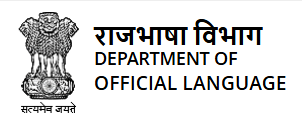Adopted by the UN General Assembly on 31.10.2003 and it entered into force on 14.12.2005 having 188 states parties (as of August 2021) and its eligible members are all countries and regional economic organization having secretariat at United Nations Office on Drugs and Crime (UNODC).
2. The UNCAC has eight chapters and 71 articles viz:
- Chapter I: General provisions;
- Chapter II: Preventive measures;
- Chapter III: Criminalization and law enforcement;
- Chapter IV: International cooperation;
- Chapter V: Asset recovery;
- Chapter VI: Technical assistance and information exchange;
- Chapter VII: Mechanisms for implementation.
3. The UNCAC Coalition, established in 2006, is a global network of over 350 civil society organisations (CSOs) in over 100 countries, committed to promoting the ratification, implementation and monitoring of the UNCAC. The Coalition engages in joint action around common positions on the UNCAC, facilitates the exchange of information among members, and supports national civil society efforts to promote the UNCAC. Coalition members share views via the Coalition website and a mailing list and ad hoc working groups. The Coalition supports civil society organisations to engage in and contribute to the UNCAC review process, including through technical support.
4. The Coalition, directly and through its members, advocates for greater transparency and space for civil society participation in all UNCAC fora – the Conference of States Parties, the meetings of the Implementation Review Group, working groups and the review process on the national level. Furthermore, the Coalition seeks to advance discussions on key issues covered by the convention, including:
- Access to Information
- Asset Recovery
- Beneficial Company Ownership Transparency
- Protection of Whistleblowers and Anti-Corruption Activists
5. It aims to mobilize broad civil society support for UNCAC and to facilitate strong civil society action at national, regional and international levels in support of UNCAC. The Coalition is open to all organizations and individuals committed to these goals. The breadth of UNCAC means that its framework is relevant for a wide range of CSOs, including groups working in the areas of human rights, labour rights, governance, economic development, environment and private sector accountability.
6. More info: https://www.unodc.org/unodc/en/





